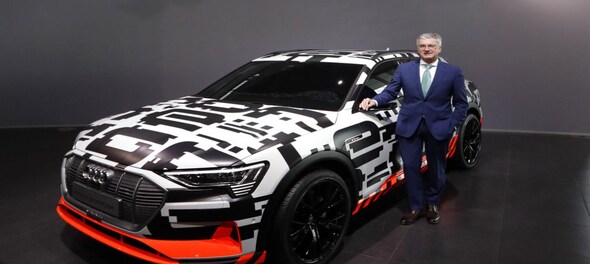
Japanese carmaker Nissan Motor has decided to stop production of new internal combustion engines (ICEs) in all major markets except the US, and focus on developing electric vehicles (EVs). The decision was taken mostly because of Euro 7, which is a set of stringent emission standards adopted by Europe.
According to a report by Nikkei Asia, the company will focus its resources on developing EVs, making it the first major Japanese automaker to do so. Earlier, Nissan had announced plans to build new battery recycling factories in the United States and Europe by the end of 2025.
Talking to CNBC, the CFO of Nissan, Ashwani Gupta, explained that the move is due to Euro 7 emission standards. “Another factor to consider was whether customers would be willing to pay for the cost of such tech,” he added.
As the market for EV is growing, several automakers around the world have either decided to halt or reduce the production and development of ICE cars between 2030 and 2035.
Audi, a subsidiary of Volkswagen, recently pledged to launch only fully electric vehicles from 2026 and halt manufacturing cars with ICEs by 2033.
These major automakers have decided to go fully electric:
Audi
Audi revealed its all-electric Audi E-Tron in 2018 that became the main competitor to Tesla. Recently, Audi announced that it will launch only electric cars starting from 2026. However, the high-end cars will continue to have gas-powered options for the next few years, but Audi will halt their production by 2033.
BMW
The German carmaker also increased the sales targets for its EVs as the stricter EU emission limits are pushing to make the shift.
According to Firstpost, BMW has upped its target of selling four million fully electric cars to 10 million in this decade. By 2030, the company claims that approximately half its global sales will be battery cars. The all-electric BMW iX SUV and the BMW i4 sedan are both ready for launch.
Ford (but only in Europe)
Ford rolled out a plug-in version of its most popular F-150 pick trucks. The company plans to keep offering the traditional gas version for now. In Europe, however, it is a different scenario, as The New York Times reported last month. In Europe, Ford has pledged to transition to only electric and plug-in hybrid vehicles by 2026, and eventually move to only electric vehicles.
General Motors
The American automaker General Motors has announced its plans to stop selling all gas and diesel vehicles by 2035. Even though it is a huge goal, Cadillac, the luxury division of General Motors, is committed to it. By 2030, the Cadillac line-up plans to be all-electric, according to Forbes.
Honda
Another Japanese automaker, Honda, announced that it will sell only EVs and hybrids in Europe after 2022. The company has set a goal that by 2030, 40 percent of Honda’s North American vehicle sales will be either battery electric or hydrogen, and by 2040 all petrol and diesel cars will be completely phased out, reported Forbes.
Honda is among the few automakers that are pushing hydrogen (fuel cells) instead of batteries as a sustainable fuel source. Since 2008, the company has been developing its Clarity fuel cell electric vehicles (FCEVs).
Jaguar
Jaguar announced ‘Reimagine,’ under which the brand will go electric, with battery versions of its entire line-up by 2030. The company invests $3.4 billion annually in new technology and has already fielded the EV Jaguar I-Pace. Over the next few years, there will be six electric Land Rovers, reports suggested.
Volkswagen
The German auto group is working to have its EVs account for 60 percent of its sales in Europe by 2030, and half of its global sales. The company is yet to announce a firm date for phasing out internal combustion engines.
According to Firstpost, Volkswagen's luxury carmaker Porsche is targeting carbon neutrality by 2030. It is forming a joint venture with German firm Customcells to build batteries and investing 100 million euros in the venture. Lamborghini, which also belongs to the Volkswagen group, also released its roadmap for its electric switch with its luxury sports cars. It hopes to have electric options for all its models by the end of 2024.
Daimler
The Mercedes Benz maker said in April that starting 2025, all its new vehicle platforms will be EV-only.
Talking to Reuters, CEO Ola Källenius said, “We really want to go for it and be dominantly, if not all-electric, by the end of the decade.” The company claims its spending on combustion vehicles will be close to zero by the end of 2025.
The luxury carmaker expects to reduce its investments in combustion engines and plug-in hybrids by 80 percent by the end of 2026. At the same time, it announced that the investment in EVs between 2022 and 2030 will be more than 40 billion euros ($47 billion), according to Forbes.
Volvo
The Swedish automaker will make only electric cars by 2030. The Volvo XC40 Recharge, the first EV by Volvo, was launched in 2020. Volvo’s parent company, Geely, already fields Polestar, an all-electrified performance luxury brand, with Polestar 1 a hybrid and Polestar 2 an electric using the same platform as the XC40 Recharge.
According to Forbes, by 2025, Volvo said half of its global sales will be fully electric, and the rest from hybrids.



